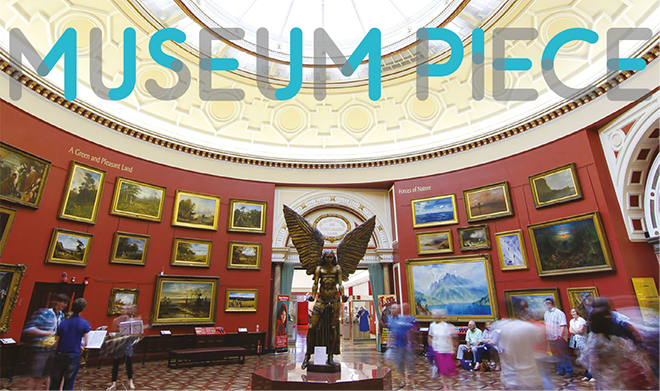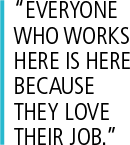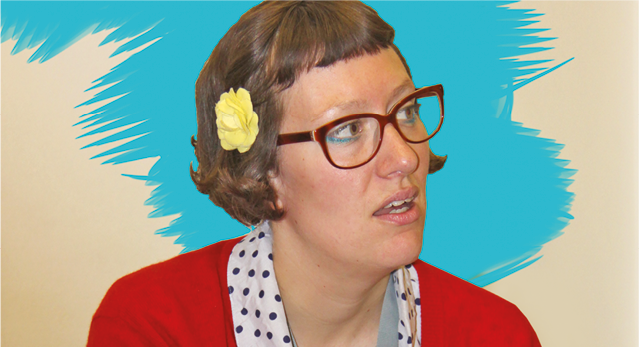
Thinking about studying art and design? It could lead you into a fascinating career as a gallery or museum curator.
BY MELISSA SNOW
 We spoke to curator, Lisa Beauchamp, who told us how she landed her picture-perfect job and about the work she does with precious paintings, sculpture and objects at Birmingham Museum and Art Gallery.
We spoke to curator, Lisa Beauchamp, who told us how she landed her picture-perfect job and about the work she does with precious paintings, sculpture and objects at Birmingham Museum and Art Gallery.
Tell us about your job and the day-to-day responsibilities you have.
I work with modern and contemporary art and I hold responsibility for all the art in my area. We have various collections, dating from the late 1800s to today. There are paintings, sculptures, photography, film and much more. I care for collections, set up exhibitions, install displays; attend conferences and many other things too.
 How do you become a curator?
How do you become a curator?
Curators have varied qualifications and people enter through different routes. Mine was very traditional. I studied art at school and completed an art foundation course. I became interested in art contextually (how art and design works in its intended environment) and I completed a degree at Manchester University. I then decided to focus on modern art and studied for a master’s degree in Visual Art, which was very intense. Luckily I received funding, so I was able to volunteer at local museums and art galleries alongside studying.
What do you wish you had known when you left school?
I wish I had known how much perseverance was needed! Job stability isn’t guaranteed and it’s been a difficult journey but I didn’t let it put me off.

What advice would you offer to someone considering becoming a curator in a gallery or museum?
Be prepared and don’t give up — I highly recommend volunteering at museums or art galleries whilst studying and immersing yourself in the art world as much as possible. Perseverance and positivity are always needed.
What is the hardest part of your job?
It’s challenging to balance my workload and to stay on top of everything. Curation is a very varied job so there’s always a lot to do. Awareness of others is important, and having excellent communication skills is vital.
What is the best thing about your job?
Completing an exhibition is extremely rewarding; I like to think I’ve done the collection justice and it’s great to see others enjoying the exhibition.
Would you say that being a curator is a lifestyle choice, rather than a straight nine to five job?
I am lucky that I get to go on lots trips around the world and I love visiting other exhibitions. I seize every opportunity I possibly can. Running a gallery is indeed a lifestyle choice and everyone who works here is here because they love their job.
So, what does the future hold for you?
I would like to carry on in my post, working with more artists, publishing articles and travelling more - I aspire to gain a better understanding of international art. I love creating good exhibitions and I always have loads of ideas - I really don’t think that’s going to change anytime soon!”
 Moving On magazine Careers and Qualifications for School Leavers
Moving On magazine Careers and Qualifications for School Leavers


 A New Sparta Group Company
A New Sparta Group Company